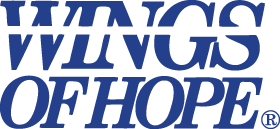American Airlines, British Airways and Iberia Set the Record Straight With Facts About Their Application for Antitrust Immunity
Written by thomas · Filed Under CommercialSeptember 12, 2008
FORT WORTH, Texas, Sept. 12 /PRNewswire-FirstCall/ — Without any facts
or data to oppose the antitrust immunity application by American Airlines,
British Airways and Iberia, Virgin Atlantic instead has resorted to
baseless arguments and hypocritical scare tactics. Virgin is intentionally
trying to mislead regulators and the general public in challenging the data
we have submitted to the U.S. Department of Transportation (DOT) in support
of our antitrust immunity application. In opposing our application, Virgin
is also opposing improved competition and more choices for customers. Here
are the facts:
1) Our DOT application contains MIDT (Marketing Information Data Tapes)
data, which is a widely recognized and valid source of information
that is required by regulators around the world, including the DOT,
the U.S. Department of Justice and the European Commission, in
analyzing market share and competition.
2) MIDT provides information on bookings worldwide from multiple Global
Distribution Systems (GDS databases, such as Amadeus, Sabre,
WorldSpan, Galileo and several others). Significantly, it also
includes third-party online bookings from sources, such as Travelocity
and Orbitz.
3) MIDT data was used in the antitrust applications filed with — and
approved by — the DOT by both the Sky Team and Star alliances and has
been used in competition analysis by the U.S. Department of Justice.
AA, BA and Iberia are using the same data for our application, which
requests immunity for members of the oneworld alliance that provide
transatlantic service.
4) Virgin’s claim that MIDT data does not include the carrier bookings
captured on our respective websites (AA.com and BA.com) is irrelevant.
That’s because MIDT also excludes direct bookings for other carriers,
such as Virgin Atlantic. In other words, in following the DOT’s own
protocol for providing data for our application, we truly offer an
apples-to-apples comparison.
5) In previous filings and public comments, Virgin has extolled the
virtues of MIDT data:
— In a 1997 joint DOT filing, Virgin said that “the MIDT data is
important.” Virgin also said that “the MIDT data improves
transportation planning and enables resources to be used more
effectively.”
— In a 2003 DOT filing, Virgin said that MIDT provides airlines
“with information on (city-pair) markets, such as the potential
size of the market (in terms of number of passengers), the
proportion of business v leisure traffic, the proportion of
traffic carried by its competitors, and so on. MIDT is the only
source of this information on international markets available
to non-US airlines. This information helps carriers make
decisions about whether or not to enter markets or expand
capacity in markets already served, by reducing uncertainty.”
6) The DOT data that Virgin cites is completely inappropriate for this
debate. That data, known as T-100, measures all onboard passengers on
a particular nonstop flight segment, without regard for their actual
origin and destination. In other words, 100 percent of the passengers
on a Dallas Fort Worth (DFW)-Heathrow flight show up in T-100 as
DFW-Heathrow local passengers, even those who don’t begin their trips
in DFW and don’t end their trips at Heathrow. Thus, it overstates a
hub carrier’s share by including everyone on the plane, as opposed to
only those passengers who originate in DFW and are traveling to London
as their final destination, which is the true DFW-Heathrow market.
For example, a passenger who flies from Houston to Paris may connect
via DFW-Heathrow. The true city pair for that customer’s itinerary is
Houston-Paris. But Virgin’s data counts those customers who are
connecting on the DFW-Heathrow segment as part of our market share on
the DFW-Heathrow city pair. That is erroneous because DFW is not the
origin and Heathrow is not the destination — those airports are just
connecting points for the true city pair (Houston-Paris).
7) The data Virgin wants to use also overstates a nonstop carrier’s share
because it does not include any one-stop competition. For example, a
customer who travels from DFW to Heathrow may connect through
Washington Dulles. The city pair market for such an itinerary is
DFW-Heathrow, and thus it competes with nonstop DFW-Heathrow service.
However, Virgin’s stats consider the one-stop service to be two
separate city pairs: DFW-Dulles as one and Dulles-Heathrow as the
other. Therefore, neither segment would show up as a competing route
to nonstop DFW-Heathrow service. This understates competition to a
particular nonstop route and is misleading to use.
In summary, there is simply no better source than MIDT data to analyze
competition. The DOT used MIDT data to consider and approve antitrust
applications by SkyTeam and Star, and the Department of Justice has used
MIDT data in its competition analysis. What’s more, Virgin has vigorously
defended MIDT data in the past as an important source of information but
now disparages it because MIDT doesn’t suit its arguments. The MIDT data
shows that our application for immunity will not harm competition, as
Virgin claims, and in fact the MIDT data demonstrates that the oneworld
alliance will have less market share at Heathrow than Star and Sky Team
alliances have in their major European hubs. For more information
http://www.moretravelchoices.com
About American Airlines
American Airlines is the world’s largest airline. American, American
Eagle and the AmericanConnection(R) airlines serve 250 cities in over 40
countries with more than 4,000 daily flights. The combined network fleet
numbers more than 1,000 aircraft. American’s award-winning Web site,
AA.com, provides users with easy access to check and book fares, plus
personalized news, information and travel offers. American Airlines is a
founding member of the oneworld(R) Alliance, which brings together some of
the best and biggest names in the airline business, enabling them to offer
their customers more services and benefits than any airline can provide on
its own. Together, its members serve nearly 700 destinations in over 140
countries and territories. American Airlines, Inc. and American Eagle
Airlines, Inc. are subsidiaries of AMR Corporation. AmericanAirlines,
American Eagle, the AmericanConnection(R) airlines, AA.com, We know why you
fly and AAdvantage are registered trademarks of American Airlines, Inc.
(NYSE: AMR)
» Próximo Post - La NASA Realiza la Primera Prueba al Nuevo Motor del Cohete “Ares I”
« Post Aneterior - Kaminski: NextGen Will Boost Environmental Efforts
Comments
¿Tiene algo que decir?
You must be logged in to post a comment.







